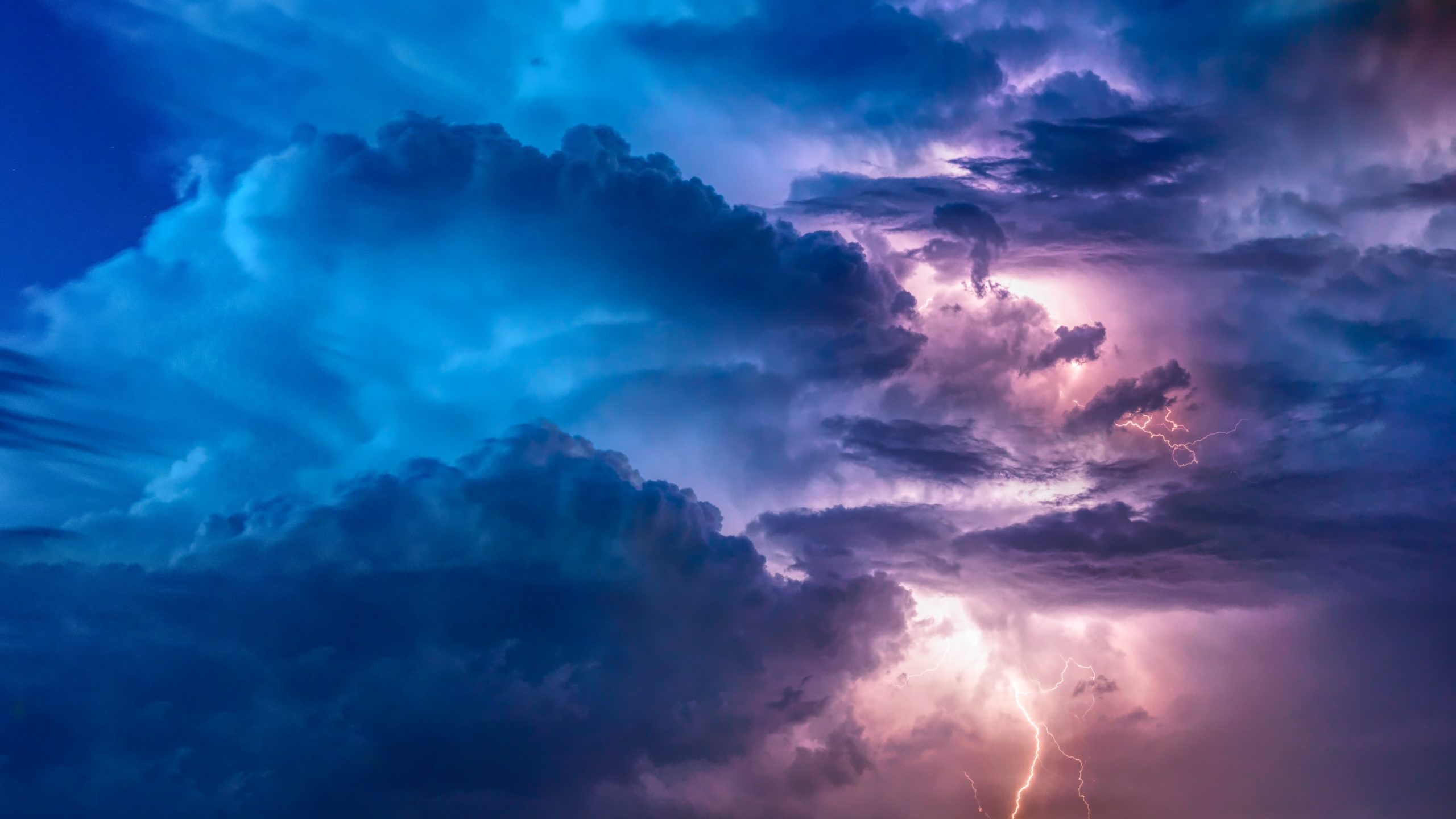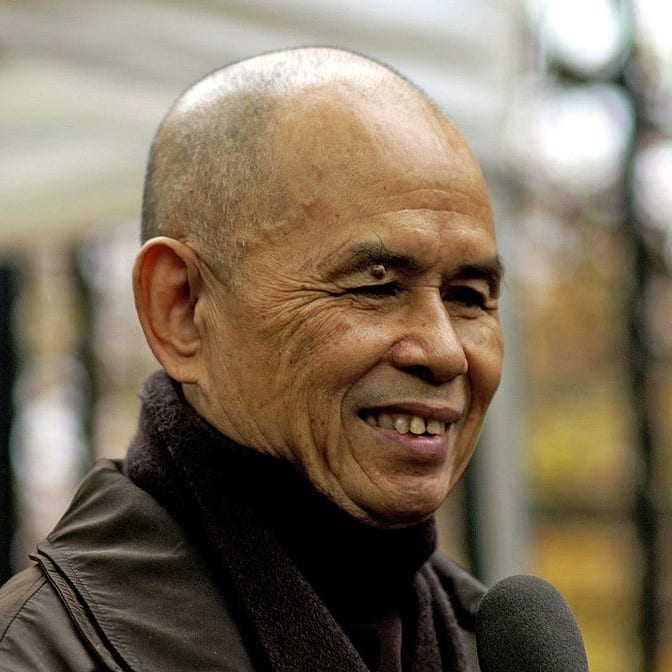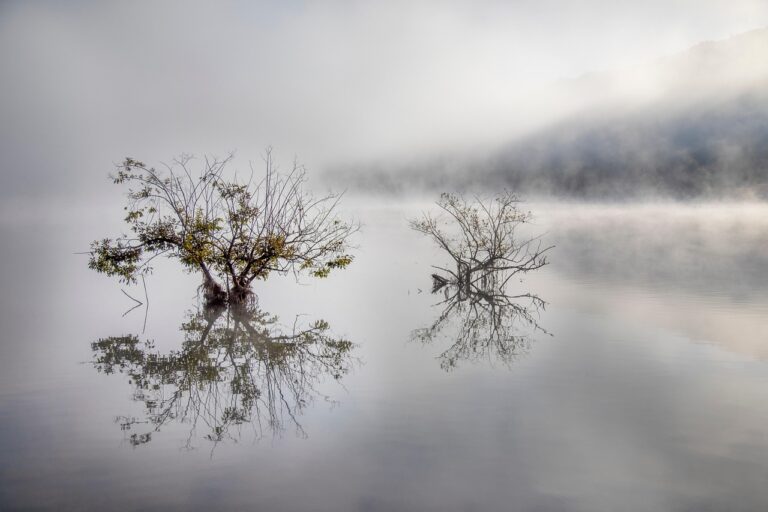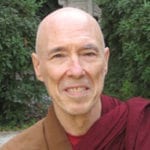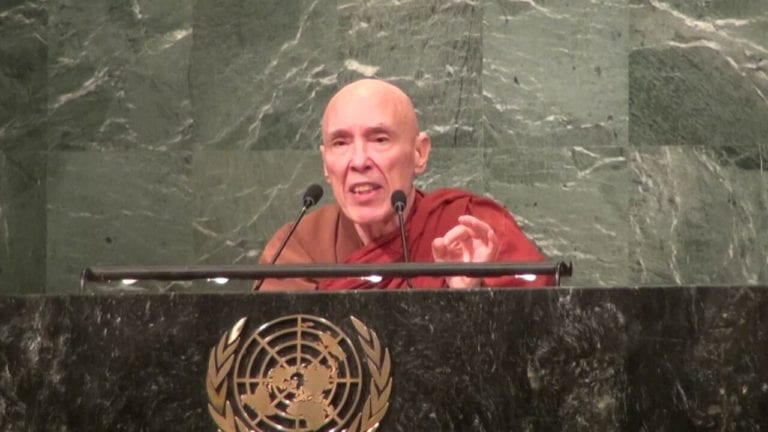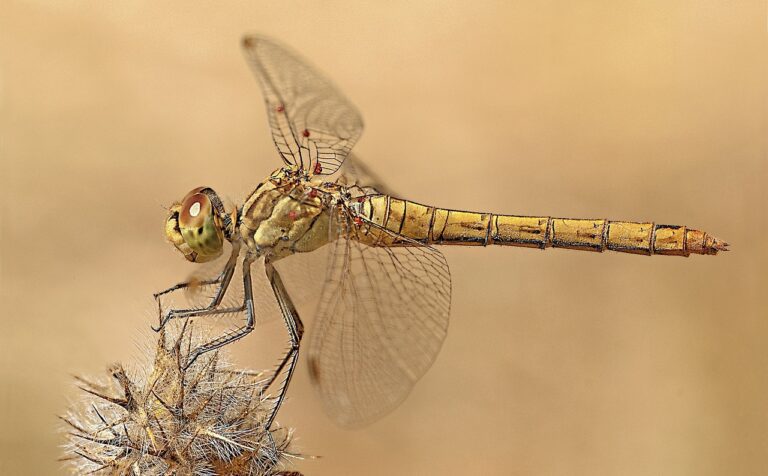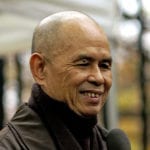Many of us are barely awake. We’re living in the world, but we can’t really see it; it’s as though we’re sleepwalking. To wake up first of all is to wake up to the beauty of the Earth. You wake up to the fact that you have a body and that your body is made of the Earth and sun and stars. You wake up to the fact that the sky is beautiful and that our planet is a jewel of the cosmos. You have an opportunity to be a child of the Earth and to make steps on this extraordinary planet.
Peace, awakening, and enlightenment always begin with you. You are the one you need to count on.
Second, to wake up means to wake up to the suffering in the world. You wake up to the fact that the Earth is in danger and living species are in danger. You want to find ways to bring relief, healing, and transformation. This requires a tremendous source of energy. If you have a strong desire in you, a mind of love, that is the kind of energy that will help you do these two things: wake up to the beauties of the planet to heal yourself and wake up to the suffering of the world and try to help. If you have that source of strength in you, if you have that mind of love, you are what can be called a buddha in action.
If you see the suffering in the world but you haven’t changed your way of living yet, it means the awakening isn’t strong enough. You haven’t really woken up. In Zen, sometimes a teacher will shout, or hit you, so you can wake up – they’ll do whatever it takes. The Zen master’s shout is like a crash of spring thunder. It wakes you up and, with the rains that follow, grasses and flowers will bloom.
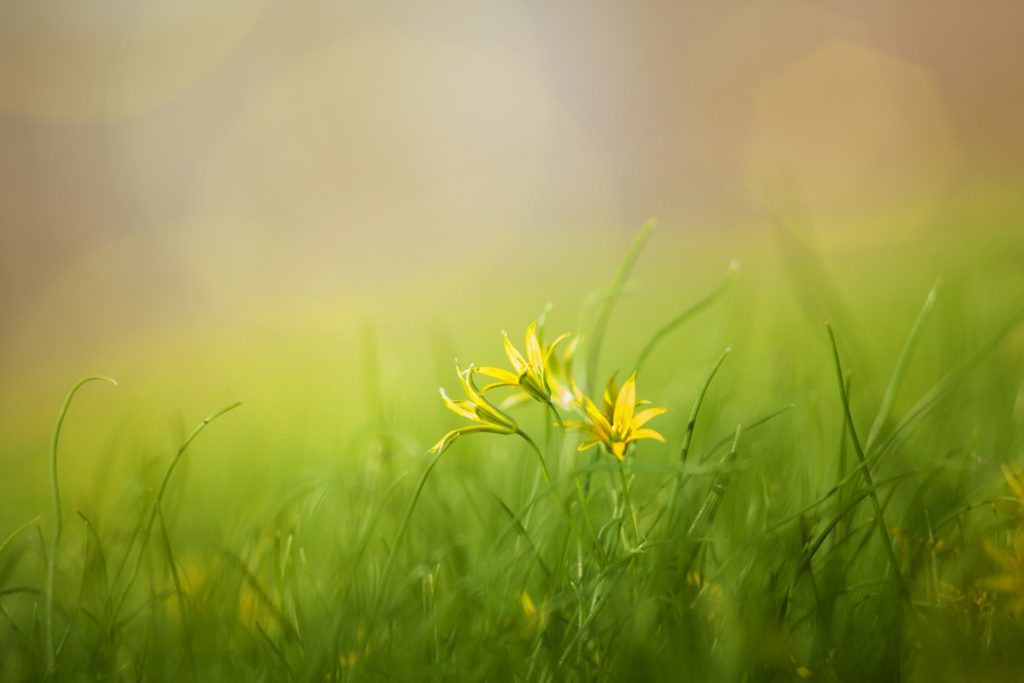
We need a real awakening, a real enlightenment. New laws and policies are not enough. We need to change our way of thinking and seeing things. This is possible; the truth is that we have not really tried to do it yet. Each one of us has to do it for ourselves. No one else can do it for you. If you are an activist and you’re eager to do something, you should begin with yourself and your own mind.
It’s my conviction that we cannot change the world if we’re not able to change our way of thinking, our consciousness. Collective change in our way of thinking and seeing things is crucial. Without it, we cannot expect the world to change.
Collective awakening is made of individual awakening. You have to wake yourself up first, and then those around you have a chance. When we ourselves suffer less we can be more helpful and we can help others to change themselves too. Peace, awakening, and enlightenment always begin with you. You are the one you need to count on.
On the one hand, we must learn the art of happiness: how to be truly present for life, so we can get the nourishment and healing we need. On the other hand, we must learn the art of suffering: the way to suffer, so we suffer much less and can help others suffer less. It takes courage and love to come back to ourselves to take care of the suffering, fear, and despair inside.
To meditate is crucial, to get out of despair, to get the insight of non-fear, to keep your compassion alive so you can be a real instrument of the Earth helping all beings. To meditate doesn’t mean to escape life, but to take time to look deeply. You allow yourself time to sit, to walk – not doing anything, just looking deeply into the situation and into your own mind.
This piece is an excerpt from Zen and the Art of Saving the Planet, written by Thích Nhất Hạnh and edited by Sister True Dedication.
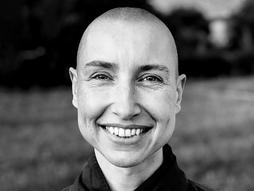
Sister True Dedication, a former journalist, is a Zen Buddhist nun ordained by Thích Nhất Hạnh. She is the editor of his latest book, Zen and the Art of Saving the Planet (2021), as well as his books The Art of Living (2017) and Love Letters to the Earth (2013).

